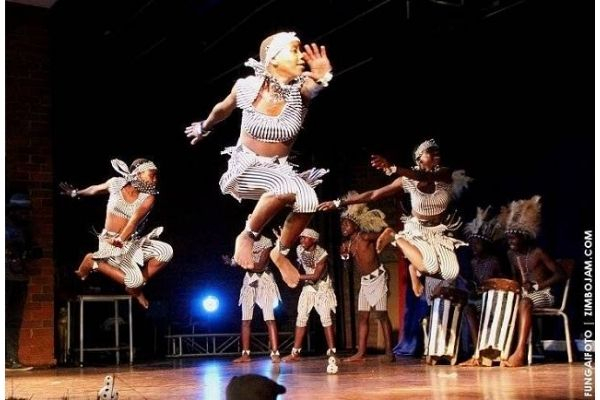Jikinya Dance Festival
The National Arts Council of Zimbabwe (NACZ) launched the Jikinya Dance Festival in 2002, and it is conducted every year among school-aged youngsters. This event provides the ideal platform and showcase for the country's young talent. It encourages young children to study and perform traditional Zimbabwean dance, maintaining the country's cultural heritage. It's also a terrific way to get a firsthand look at the country's culture through these incredible performances.
The event provides opportunity to contribute to the enormous business that produces costumes, shakers/rattles, and drums that are required in schools. The goal of this event is to inspire youngsters to appreciate and perform traditional Zimbabwe an dances. As a result, the country's cultural legacy will be preserved. The event is usually organized by NACZ in collaboration with the National Association of Primary School Heads (NAPH). Delta Corporation and the Culture Fund are also sponsors of the event.
Jikinya is a joyful dance that includes a lot of drumming, dancing, and singing. The Murewa and Uzumba Maramba Pfungwe (UMP) communities in the country's North Eastern Districts perform the dance. Dembe/Mhende, a Shona term meaning "Mole," was the name of the traditional fertility dance. Mole signifies fertility, which is why the dance is so popular among the people. Mhande, Dinhe, and Isitshikitsha are among the dances included in this first event.
Last but not least, the Jikinya Dance Festival is one of the few events in the country that highlights traditional customs and it is also one of the most famous festivals in Zimbabwe. The National Arts Council of Zimbabwe hosts an annual event in November that brings together elementary school students from throughout the nation to perform a range of traditional dance pieces. The finals are often held in Harare or Bulawayo.
Location: Harare, Zimbabwe
Takes Place: November









